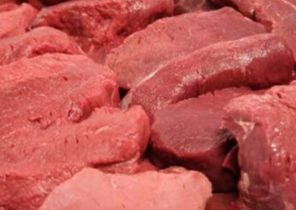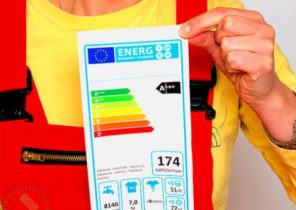The member countries of the OPEC agreement regarding the reduction of oil production preparing for the meeting of June 10th, when they will have to choose between the extension of the current agreement or tightening.
According to Olga Solovieva, the author of an article published in the Russian “Nezavisimaya Gazeta”, some countries prefer to extend until the end of the year the system of maximum quotas, an anticipated reduction in production.
On the other hand, opponents of this idea, including Russia, prefer a gradual increase in production. Experts believe that these disagreements can lead to renewed price war between Riyadh and Moscow.
Last Thursday oil prices continued to rise, because the price of August contracts for Brent crude oil was 35 dollars a barrel. This price increase is considered the result of the statements of the countries-participants of the OPEC agreement regarding the extension of the existing agreement to reduce production after June.
Agreement to reduce production
In April, members of OPEC+ agreed to cut oil production by two years. The agreement provides that the reduction in may and June will amount to 9.7 million barrels a day, and in the second half of the year to 7.7 million barrels. In the period between January 2021 and may 2022, it will be reduced to 6 million barrels per day.
In addition, under the deal, Russia and Saudi Arabia will cut production in an equal volume, which will be 2.5 million barrels per day. It is assumed that the percentage reductions for each will be reduced to 2 million by the end of the year, and in the future (until April 2022) — up to 1.5 million barrels.
According to the Russian author, this agreement ended the price war between the two countries, helped to get rid of surplus oil on world markets, and led to higher prices for Brent crude to 37.5 dollars in London last Wednesday, a 70% increase compared to may.
However, despite this agreement, OPEC Ministers+ to meet 10 Jun to take a number of additional decisions necessary to achieve balance in the market.
It is noteworthy that the presidency of OPEC Algeria offered to host the next meeting of the representatives of the members and their partners 4 June instead of the planned 9, and 10 numbers of the same month.
The Russian position
Obviously, the parties disagree about the future of a two-year agreement. For example, in early may, Saudi Arabia announced a voluntary reduction of its production, starting next month, 1 million barrels per day, while the UAE and Kuwait announced the reduction of production of 100 thousand and 80 thousand barrels.
A number of other countries participating in the agreement OPEC+, seriously discussing the idea of preserving the system of maximum quota reduction of production at 9.7 million barrels per day until September or the end of 2020.
However, the Russian position remains unclear. Although President Putin and crown Prince of Saudi Arabia Mohammed bin Salman pointed to the importance of joint efforts to implement the agreement OPEC+ and the expansion of cooperation in this direction, in fact the views of the parties on the future of this process seemed contradictory.
According to sources in the Russian news Agency TASS, the Minister of energy Alexander Novak have discussed this issue at a meeting with oil companies, and a common position among them is still there.
According to the Agency “Interfax”, some companies have agreed to extend the agreement for another two months, while others believe that it is time in July, it is time to begin to increase production. According to other sources, Russia is determined to reduce the production cuts in the coming period, following the agreement of OPEC+ signed in April.
According to experts, the market worried about the ambiguity of the Russian position at a time when there is the need to maintain the current level of cuts. If the demand for oil will continue to increase in the foreseeable future, during the second half of the year there will be a deficit that will allow you to “digest” the volume accumulated in the last period.
This scenario is possible only under the condition that OPEC will agree to continue to minimize the production, will accelerate the recovery of the market.
The pressure on Russia
Saudi Arabia, for its part, will continue to insist on the extension of the agreement until the end of 2020, because it believes that maintaining low levels of production will cause the least damage, given the technologies used in production and reserves of crude oil at ports and storage facilities that would enable the Kingdom to meet growing demand without increasing production.
According to some experts, the destiny of this agreement will be purely political in nature, since the pressure on Russia by Saudi Arabia and the United States in order to extend the term of the agreement will increase significantly.
Putin will be hard to resist the pressure and refuse to continue the cooperation, because this will lead to a new wave of volatility in the market and falling prices.
Thus, Russia can agree, for example, set its share of the reduction in production at 1.5 million barrels a day, although its current obligation includes a reduction of $ 2.5 million.
This difference in the production of one million barrels per day, which Russia refuses to accept, may be offset by other countries-exporters of oil, including the United States.







